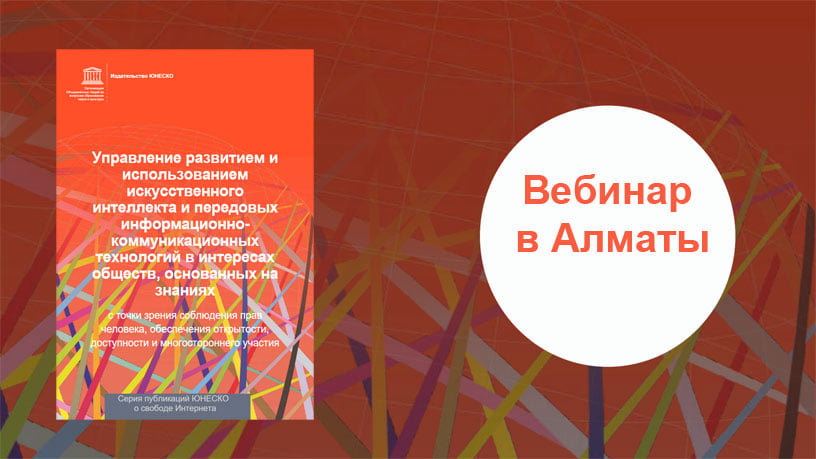On 15th February ISSAI participated in UNESCO webinar on managing AI. UNESCO has released the report “Managing Artificial Intelligence and Advanced ICTs for Knowledge-based Societies”, translated into Russian in 2020. Various stakeholders were invited to discuss the use of AI in various sectors of the CIS region in order to explore the possibilities of applying international standards in the areas of good governance, justice, education, culture, science, as well as communication and information.
Universities, government organizations and civil society organizations were invited to discuss the development of new legislative frameworks and the revision of existing legislation on AI as an opportunity to achieve the Sustainable Development Goals (SDGs), taking into account the contribution to building inclusive knowledge societies.
UNESCO has shared it’s ROAM-X principle to consider when working in AI field:
R – Rights: AI and Internet needs to be based on Human rights. This includes rights to access to access the data, personalization, anonymity).
O – Openness: Transparent/Open AI and Internet. Information needs to be delivered clearly and understandably. No monopoly should be allowed in the AI utilization. Need to avoid the “Black Box” problem was raised which means that AI technology needs to be explained as detailed as possible.
A – Access to all: AI and Internet need to be able to be accessed and used by all the people in a country. There is a problem of one countries having more access to AI than others. Issue of AI-talents emigrating the developing countries due to low pay-checks, opportunities; variety etc; or to private sector. Therefore, governments needs to ensure the access to education and knowledge to all, gender equality, strengthen the AI infrastructure on the university base, and raise salaries.
M – Multi Stakeholder participation: Importance of fostering inclusion, diversity, transparency, equality, and accountability.
X – Cross-cutting issues: Stressing the importance of Gender equality in certain countries. Importance of creating a clear legal framework/base on the use of AI in countries and universally worldwide.



